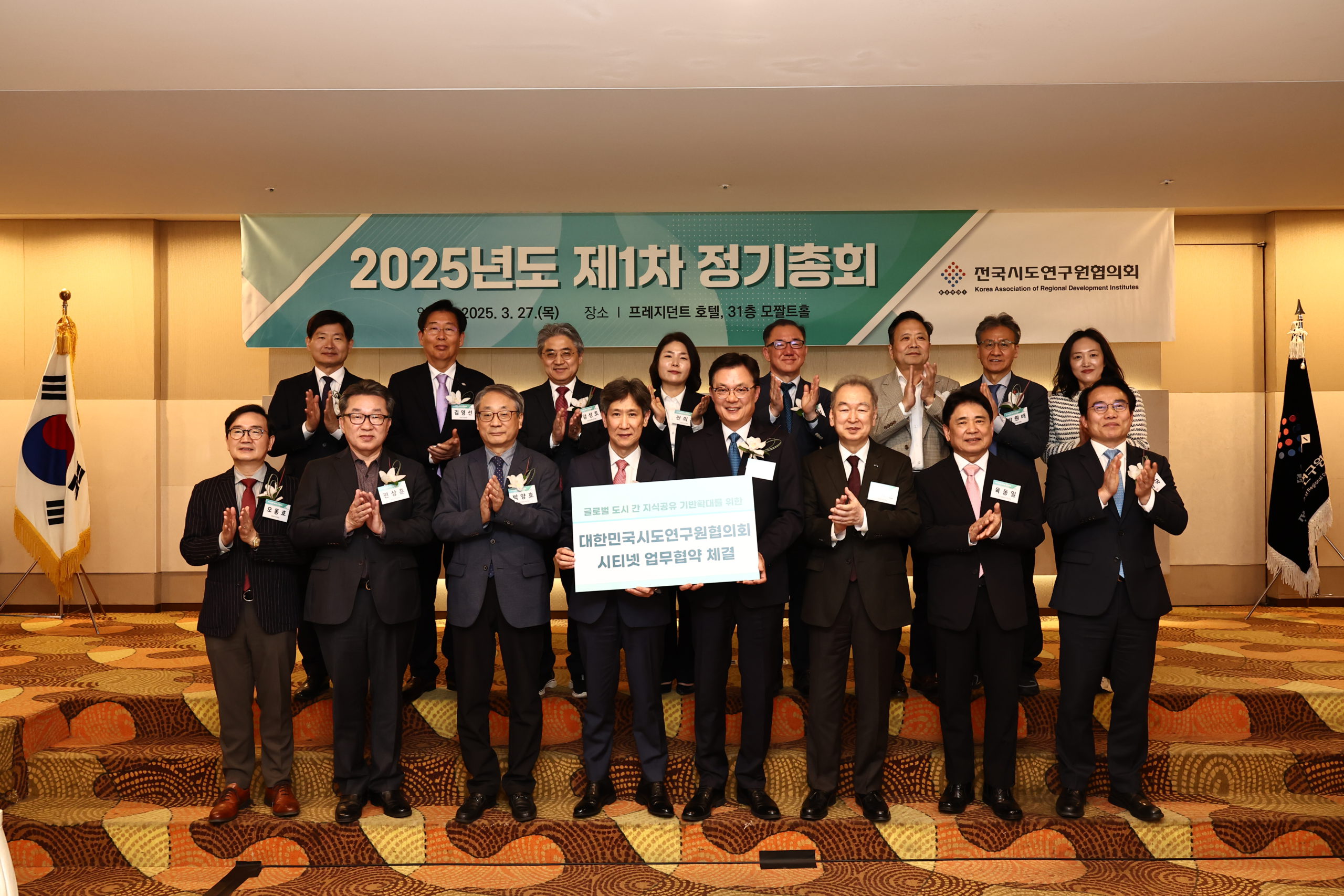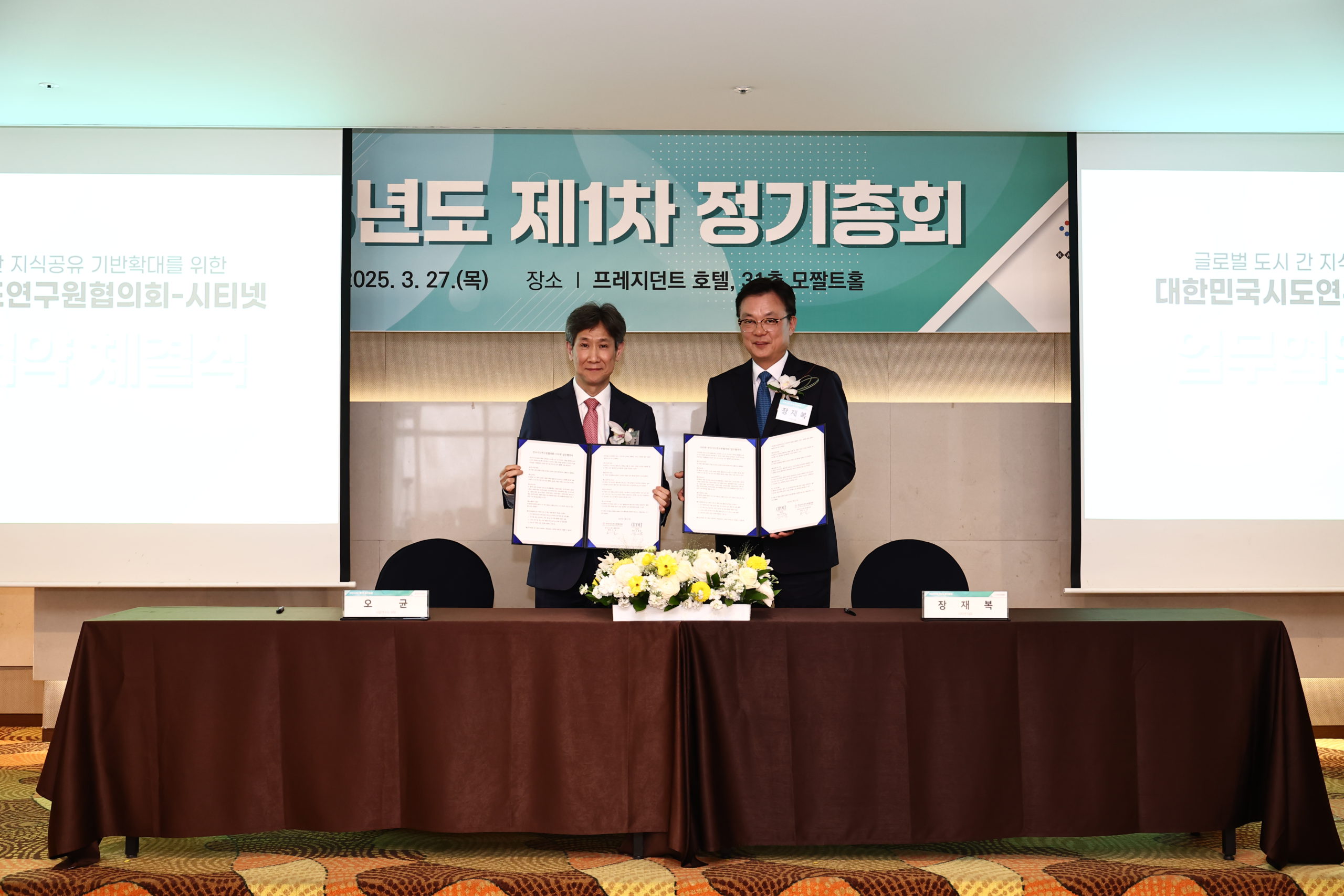In an era when cities are grappling with crises that increasingly spill across borders—from rising heatwaves to public health crises—cities are searching for solutions that are both local in context and global in reach.
On 27 March, CityNet took another step in that direction. Formalising the partnership with Korea Association of Regional Development Institute (KARDI 전국시도연협의회)—a coalition of 18 regional research institutes and think tanks—CityNet signed a Memorandum of Understanding (MOU) to deepen cooperation with the country’s decentralised research powerhouses for CityNet Members to get connected with. For years, these institutes have shaped regional policy. Now, their insights may help cities beyond South Korea’s shores and in CityNet’s member cities.
Under the partnership, research findings generated by South Korean regional institutes will be shared across CityNet’s vast network. In return, policy experiments and lived experiences from overseas CityNet member cities can be fed back into Korea’s local research ecosystem—forging a two-way knowledge loop that could help bridge the gap between academic theory and global municipal practices.
The collaboration will focus on several fronts: joint access to urban data and research; co-hosting symposiums and workshops; expert exchanges; training programmes; and initiatives to globally showcase exemplary policies and urban models. It’s a bold vision for an alliance that spans everything from megacity challenges to the more localised concerns of provincial governments.
Founded in 1987 with the backing of UNESCAP, UNDP and UN-Habitat, CityNet now links more than 150 cities and institutions across the region. The Association, meanwhile, brings together influential research institutes including the Seoul Institute, a CityNet Associate member since 2006, and the Korea Research Institute for Local Administration. Widely regarded as a key policy hub for the capital, the Seoul Institute will serve as a critical conduit between South Korean research and the broader CityNet community.
“This is a time when environmental challenges, pandemics, and other urban issues demand joint action across borders,” said Mr. Jaebok Chang, CEO of CityNet. “Research and policy can no longer remain confined to national boundaries. CityNet aims to be the platform where local governance, research excellence, and international collaboration converge to deliver real solutions.”
Oh Kyun, Chair of the Association, echoed that vision. “With CityNet, we’ll work to ensure that our local innovation resonates on a global stage.”
This article was written by CityNet Programme Officer, Ms. Erin Um. She can be reached at programs1@citynet-ap.org.



